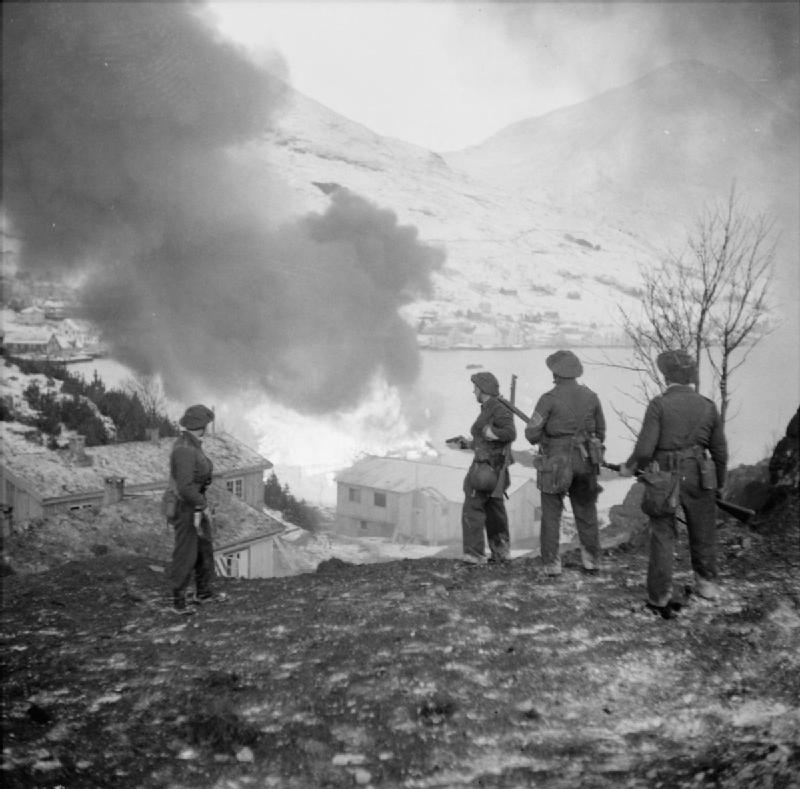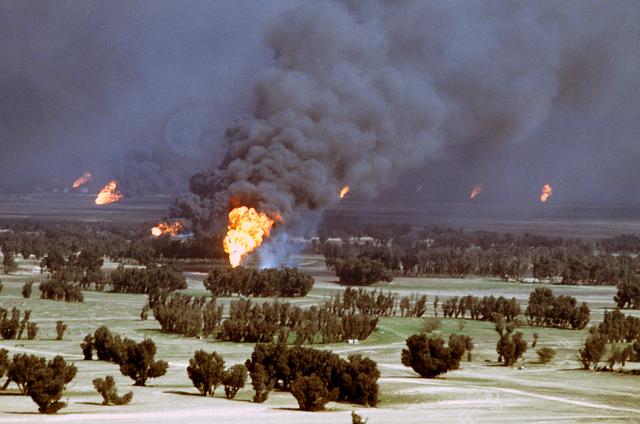|
Chevauchée
A ''chevauchée'' (, "promenade" or "horse charge", depending on context) was a raiding method of medieval warfare for weakening the enemy, primarily by burning and pillaging enemy territory in order to reduce the productivity of a region, in addition to siege warfare most often as part of wars of conquest but occasionally as a punitive raid. The use of the ''chevauchée'' declined at the end of the 14th century as the focus of warfare turned to sieges. It is conceptually similar to the scorched earth strategies used in modern warfare. In the Iberian peninsula, this type of raid was usually called a ''cabalgada''cabalgada in the Diccionario de la Real Academia Española. (older spelling: ''cavalgada''). The [...More Info...] [...Related Items...] OR: [Wikipedia] [Google] [Baidu] |
Raid (military)
Raiding, also known as depredation, is a military tactic or operational warfare mission which has a specific purpose. Raiders do not capture and hold a location, but quickly retreat to a previous defended position before enemy forces can respond in a coordinated manner or formulate a counter-attack. A raiding group may consist of combatants specially trained in this tactic, such as commandos, or as a special mission assigned to any regular troops. Raids are often a standard tactic in irregular warfare, employed by warriors, guerrilla fighters or other irregular military forces. Some raids are large, for example the Sullivan Expedition. The purposes of a raid may include: * to demoralize, confuse, or exhaust the enemy; * to ransack, pillage, or plunder * to destroy specific goods or installations of military or economic value; * to free POWs * to capture enemy soldiers for interrogation; * to kill or capture specific key persons; * to gather intelligence. Land Tribal societi ... [...More Info...] [...Related Items...] OR: [Wikipedia] [Google] [Baidu] |
Hundred Years' War
The Hundred Years' War (; 1337–1453) was a series of armed conflicts between the kingdoms of Kingdom of England, England and Kingdom of France, France during the Late Middle Ages. It originated from disputed claims to the French Crown, French throne between the English House of Plantagenet and the French royal House of Valois. Over time, the war grew into a broader power struggle involving factions from across Western Europe, fuelled by emerging nationalism on both sides. The Hundred Years' War was one of the most significant conflicts of the Middle Ages. For 116 years, interrupted by several Ceasefire, truces, five generations of kings from two rival Dynasty, dynasties fought for the throne of the dominant kingdom in Western Europe. The war's effect on European history was lasting. Both sides produced innovations in military technology and tactics, including professional standing armies and artillery, that permanently changed warfare in Europe; chivalry, which had reac ... [...More Info...] [...Related Items...] OR: [Wikipedia] [Google] [Baidu] |
Hundred Years War
The Hundred Years' War (; 1337–1453) was a series of armed conflicts between the kingdoms of England and France during the Late Middle Ages. It originated from disputed claims to the French throne between the English House of Plantagenet and the French royal House of Valois. Over time, the war grew into a broader power struggle involving factions from across Western Europe, fuelled by emerging nationalism on both sides. The Hundred Years' War was one of the most significant conflicts of the Middle Ages. For 116 years, interrupted by several truces, five generations of kings from two rival dynasties fought for the throne of the dominant kingdom in Western Europe. The war's effect on European history was lasting. Both sides produced innovations in military technology and tactics, including professional standing armies and artillery, that permanently changed warfare in Europe; chivalry, which had reached its height during the conflict, subsequently declined. Stronger na ... [...More Info...] [...Related Items...] OR: [Wikipedia] [Google] [Baidu] |
Scorched Earth
A scorched-earth policy is a military strategy that aims to destroy anything that might be useful to the enemy. Any assets that could be used by the enemy may be targeted, which usually includes obvious weapons, transport vehicles, communication sites, and industrial resources. However, anything useful to the advancing enemy may be targeted, including food stores and agricultural areas, water sources, and even the local people themselves, though the last has been banned under the 1977 Geneva Conventions. The practice can be carried out by the military in enemy territory or in its own home territory while it is being invaded. It may overlap with, but is not the same as, punitive destruction of the enemy's resources, which is usually done as part of political strategy, rather than operational strategy. Notable historic examples of scorched-earth tactics include William Tecumseh Sherman's March to the Sea in the American Civil War, Kit Carson's subjugation of the America ... [...More Info...] [...Related Items...] OR: [Wikipedia] [Google] [Baidu] |
Ghazwa
A ''ghazi'' ( ar, غازي, , plural ''ġuzāt'') is an individual who participated in ''ghazw'' (, '' ''), meaning military expeditions or raiding. The latter term was applied in early Islamic literature to expeditions led by the Islamic prophet Muhammad, and later taken up by Turkic military leaders to describe their wars of conquest. In the context of the wars between Russia and the Muslim peoples of the Caucasus, starting as early as the late 18th century's Sheikh Mansur's resistance to Russian expansion, the word usually appears in the form ''gazavat'' (). In English-language literature, the ''ghazw'' often appears as '' razzia'', a borrowing through French from Maghrebi Arabic. In modern Turkish, ''gazi'' is used to refer to veterans, and also as a title for Turkic Muslim champions such as Ertuğrul and Osman I. Ghazw as raid—razzia In pre-Islamic Bedouin culture, ghazw was a form of limited warfare verging on brigandage that avoided head-on confrontations and inste ... [...More Info...] [...Related Items...] OR: [Wikipedia] [Google] [Baidu] |
Umayyad
The Umayyad Caliphate (661–750 CE; , ; ar, ٱلْخِلَافَة ٱلْأُمَوِيَّة, al-Khilāfah al-ʾUmawīyah) was the second of the four major caliphates established after the death of Muhammad. The caliphate was ruled by the Umayyad dynasty ( ar, ٱلْأُمَوِيُّون, ''al-ʾUmawīyūn'', or , ''Banū ʾUmayyah'', "Sons of Umayya ibn Abd Shams, Umayyah"). Uthman ibn Affan (r. 644–656), the third of the Rashidun caliphs, was also a member of the clan. The family established dynastic, hereditary rule with Mu'awiya I, Muawiya ibn Abi Sufyan, long-time governor of Syria (region), Greater Syria, who became the sixth caliph after the end of the First Fitna in 661. After Mu'awiyah's death in 680, conflicts over the succession resulted in the Second Fitna, and power eventually fell into the hands of Marwan I from another branch of the clan. Greater Syria remained the Umayyads' main power base thereafter, with Damascus serving as their capital. The Umayyads c ... [...More Info...] [...Related Items...] OR: [Wikipedia] [Google] [Baidu] |
William Montgomery Watt
William Montgomery Watt (14 March 1909 – 24 October 2006) was a Scottish Orientalist, historian, academic and Anglican priest. From 1964 to 1979, he was Professor of Arabic and Islamic studies at the University of Edinburgh. Watt was one of the foremost non-Muslim interpreters of Islam in the West, and according to Carole Hillenbrand "an enormously influential scholar in the field of Islamic studies and a much-revered name for many Muslims all over the world". Watt's comprehensive biography of the Islamic prophet Muhammad, ''Muhammad at Mecca'' (1953) and '' Muhammad at Medina'' (1956), are considered to be classics in the field. Early life and education Watt was born on 14 March 1909 in Ceres, Fife, Scotland. His father, who died when he was only 14 months old, was a minister of the Church of Scotland. Career Ordained ministry Watt was ordained in the Scottish Episcopal Church as a deacon in 1939 and as a priest in 1940. He served his curacy at St Mary The Boltons, West Br ... [...More Info...] [...Related Items...] OR: [Wikipedia] [Google] [Baidu] |
Islamic Holy War
Jihad (; ar, جهاد, jihād ) is an Arabic word which literally means "striving" or "struggling", especially with a praiseworthy aim. In an Islamic context, it can refer to almost any effort to make personal and social life conform with God's guidance, such as struggle against one's evil inclinations, proselytizing, or efforts toward the moral betterment of the Muslim community (''Ummah''), though it is most frequently associated with war. In classical Islamic law (''sharia''), the term refers to armed struggle against unbelievers, while modernist Islamic scholars generally equate military ''jihad'' with defensive warfare. In Sufi circles, spiritual and moral jihad has been traditionally emphasized under the name of ''greater jihad''. The term has gained additional attention in recent decades through its use by various insurgent Islamic extremist, militant Islamist, and terrorist individuals and organizations whose ideology is based on the Islamic notion of ''jihad''. The ... [...More Info...] [...Related Items...] OR: [Wikipedia] [Google] [Baidu] |
Muhammad
Muhammad ( ar, مُحَمَّد; 570 – 8 June 632 Common Era, CE) was an Arab religious, social, and political leader and the founder of Islam. According to Muhammad in Islam, Islamic doctrine, he was a prophet Divine inspiration, divinely inspired to preach and confirm the tawhid, monotheistic teachings of Adam in Islam, Adam, Abraham in Islam, Abraham, Moses in Islam, Moses, Jesus in Islam, Jesus, and other Prophets and messengers in Islam, prophets. He is believed to be the Seal of the Prophets within Islam. Muhammad united Arabian Peninsula, Arabia into a single Muslim polity, with the Quran as well as his teachings and practices forming the basis of Islamic religious belief. Muhammad was born approximately 570CE in Mecca. He was the son of Abdullah ibn Abd al-Muttalib and Amina bint Wahb. His father Abdullah was the son of Quraysh tribal leader Abd al-Muttalib ibn Hashim, and he died a few months before Muhammad's birth. His mother Amina died when he was six, lea ... [...More Info...] [...Related Items...] OR: [Wikipedia] [Google] [Baidu] |
Battle Of Crécy
The Battle of Crécy took place on 26 August 1346 in northern France between a French army commanded by King PhilipVI and an English army led by King EdwardIII. The French attacked the English while they were traversing northern France during the Hundred Years' War, resulting in an English victory and heavy loss of life among the French. The English army had landed in the Cotentin Peninsula on 12 July. It had burnt a path of destruction through some of the richest lands in France to within 2 miles (3 km) of Paris, sacking many towns on the way. The English then marched north, hoping to link up with an allied Flemish army which had invaded from Flanders. Hearing that the Flemish had turned back, and having temporarily outdistanced the pursuing French, Edward had his army prepare a defensive position on a hillside near Crécy-en-Ponthieu. Late on 26 August the French army, which greatly outnumbered the English, attacked. During a brief archery duel a large force of ... [...More Info...] [...Related Items...] OR: [Wikipedia] [Google] [Baidu] |
Iberia
The Iberian Peninsula (), ** * Aragonese and Occitan: ''Peninsula Iberica'' ** ** * french: Péninsule Ibérique * mwl, Península Eibérica * eu, Iberiar penintsula also known as Iberia, is a peninsula in southwestern Europe, defining the westernmost edge of Eurasia. It is principally divided between Spain and Portugal, comprising most of their territory, as well as a small area of Southern France, Andorra, and Gibraltar. With an area of approximately , and a population of roughly 53 million, it is the second largest European peninsula by area, after the Scandinavian Peninsula. Name Greek name The word ''Iberia'' is a noun adapted from the Latin word "Hiberia" originating in the Ancient Greek word Ἰβηρία ('), used by Greek geographers under the rule of the Roman Empire to refer to what is known today in English as the Iberian Peninsula. At that time, the name did not describe a single geographical entity or a distinct population; the same name was us ... [...More Info...] [...Related Items...] OR: [Wikipedia] [Google] [Baidu] |



